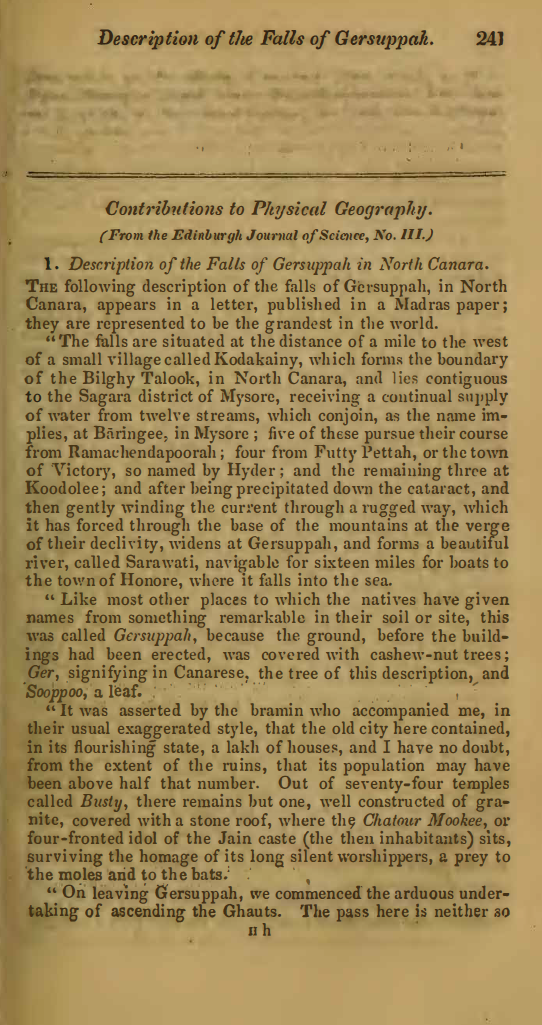Contributions to physical geography
From the Edinburgh Journal of Science, No. III
DOI:
https://doi.org/10.21504/saqj.13.2647Keywords:
Falls of Gersuppah, North Canara, Mysore, Ghauts (Western Ghats), River Saravati, Honore, KodakainyAbstract
This article presents a descriptive account of the Falls of Gersuppah (now widely known as Jog Falls), located in North Canara, India, near the Mysore border. Sourced from a traveller's letter published in a Madras paper, the falls are touted as possibly the "grandest in the world" due to their immense height and terrifying grandeur.
The author details the falls' setting, mentioning the origin of the River Saravati from twelve conjoining streams, its navigability down to the town of Honore, and the etymology of the nearby village's name. The surrounding area is noted for its extensive ruins and a surviving granite Jain temple.
A major focus of the description is the perilous yet sublime viewing experience from the top of the immense basin (shaped like a horseshoe), where the spectator feels "looking into the brink of eternity!" The account describes five separate bodies of water being hurled down the "dread abyss." The author includes a detailed, though crude, calculation of the fall's depth, using the time it took a coconut to fall (eight seconds), which arrives at a height of approximately 1030 English feet. The article concludes by comparing Gersuppah's height favourably to that of other celebrated waterfalls of the time, including Niagara, affirming its place among the "wonders of the world."
Downloads

